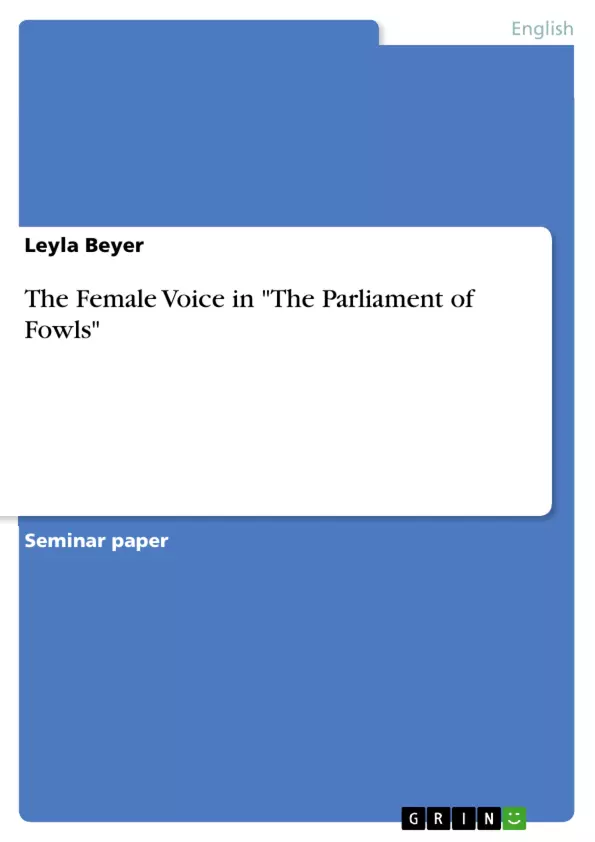Geoffrey Chaucer’s texts are commonly subject to the philosophical exploration of allegories of love, and nature, as well as the portrayal of sexuality and gender. The issue of feminism has been a controversial and much-disputed subject within the field of Medieval studies of Chaucerian research. The emerging interest of scholars to approach Chaucer’s texts from a feminist perspective aims to figure Chaucer’s view of women's role and whether he was an early feminist or not. This paper aims to investigate the concept of female voice in "The Parliament of Fowls" and argues that the female expression of autonomous voice is influenced and even suppressed by the figures of male eagles and other birds in the audience.
Table of Contents
- Introduction
- Discussion
- Speaking as the exercise of power
- Free choice and indecision
- Silence as a form of agency
- Conclusion
Objectives and Key Themes
This term paper examines the portrayal of female voice in Geoffrey Chaucer's The Parliament of Fowls, exploring how the text presents the relationship between women's discourse and power dynamics within the poem.
- The role of speaking as an exercise of power
- The concept of "free choice" and its implications for female agency
- The significance of silence as a form of resistance or expression
- The influence of societal norms on female expression
- The potential for the female voice to be both suppressed and empowered within the narrative.
Chapter Summaries
The introduction provides a general overview of Chaucer's works and the growing interest in feminist interpretations of his writings. It then introduces The Parliament of Fowls and outlines the central question: how is the female voice presented in the poem, and does it represent a suppressed or empowered voice?
The discussion chapter delves into three key aspects: speaking as an exercise of power, the concept of free choice and indecision, and the potential for silence to represent agency. This section examines how the male voices in the poem dominate, seemingly suppressing the female voice. It also explores the implications of the formel's decision to remain silent, analyzing whether it signifies forced conformity or a strategic form of resistance.
Keywords
Key concepts explored in this paper include female voice, power dynamics, free choice, silence, suppression, empowerment, and societal norms. The analysis is grounded in Chaucer's The Parliament of Fowls, a dream-vision poem that offers insights into medieval perceptions of gender and agency.
- Quote paper
- Leyla Beyer (Author), 2022, The Female Voice in "The Parliament of Fowls", Munich, GRIN Verlag, https://www.grin.com/document/1319070



